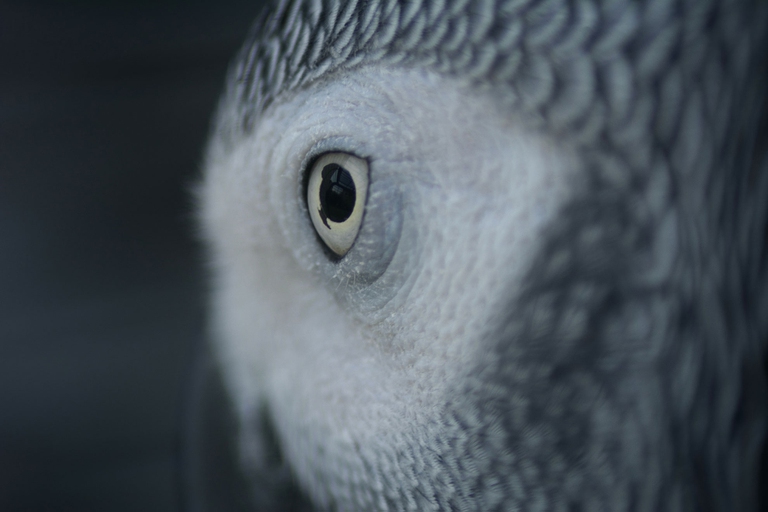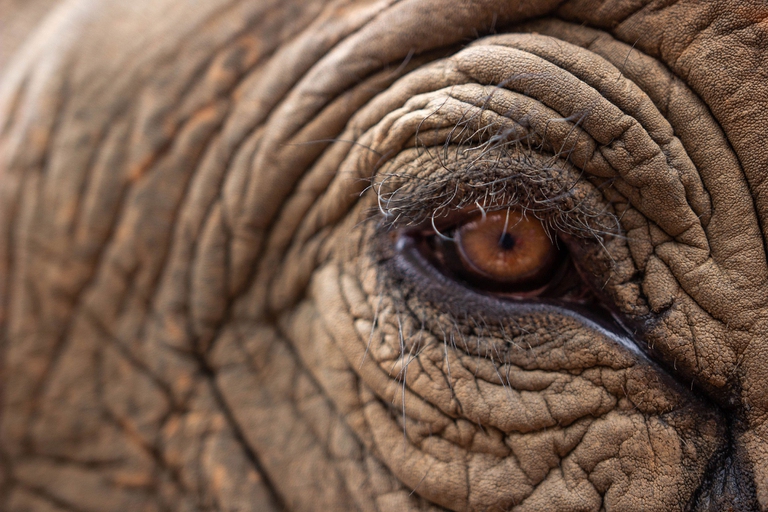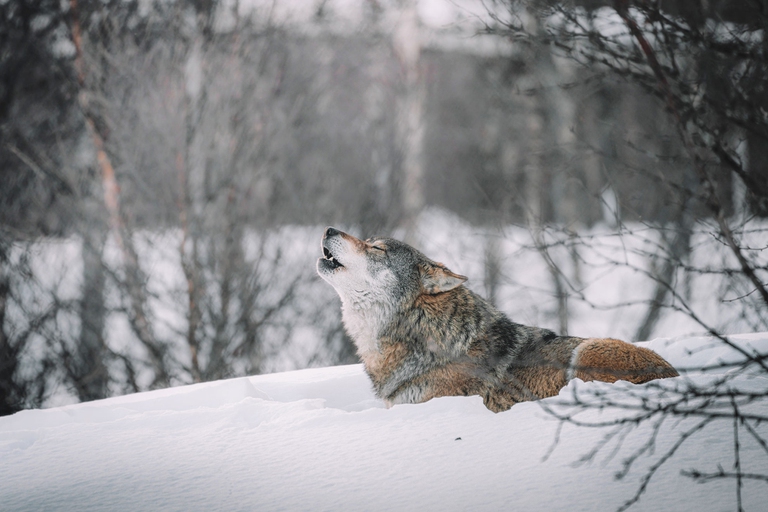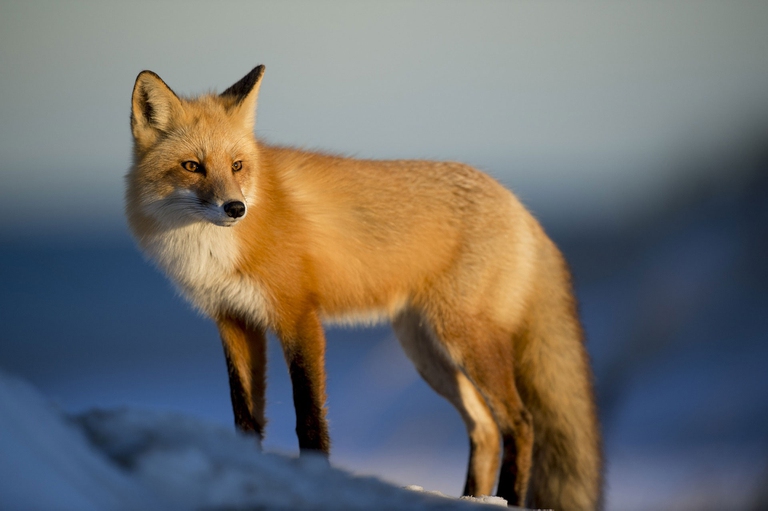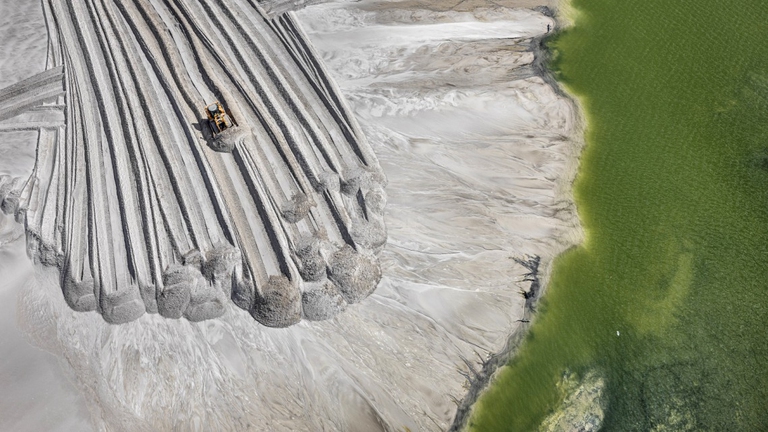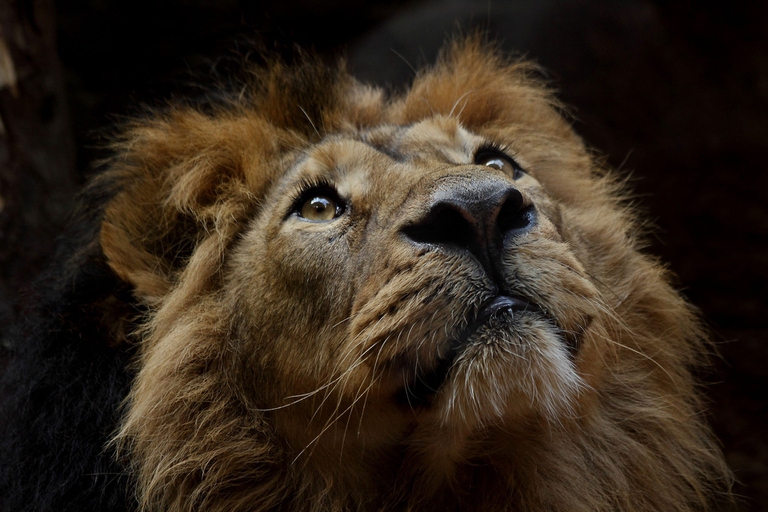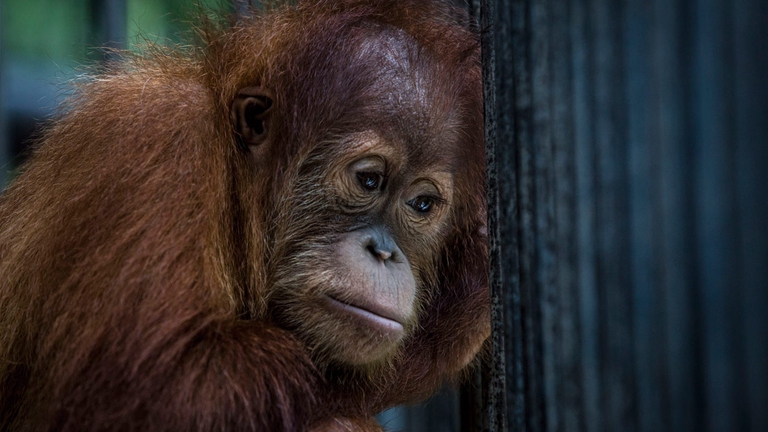
Even Cinema can reduce its ecological footprint, both in technical operations and in storytelling. TorinoFilmLab shows how.
Through stories of encounters between humans and animals, Our Wild Calling offers a way out of an age of solitude. We speak to author Richard Louv.
After reading Our Wild Calling, journalist Richard Louv‘s latest book, one of two things can happen: the luckiest will find an explanation for what they’ve felt in their hearts since they were kids. The rest will start to see the animal world in a completely different way. It’s simply impossible not to be affected by this book. Telling stories of encounters between human beings and other species, Louv transports the reader into a parallel dimension where animals are given back the individuality, complexity, and justice that our society often denies them.
Our Wild Calling is truly a manual for finding “nature’s whispers“, which we hear loud and clear when we’re children but tend to forget as we grow up. This book provides the key to winning some of our time’s most important challenges.
Explaining with words what we feel when we interact with an animal – be it a pet or a wild animal – isn’t always easy. Sometimes that moment goes well beyond what the words in our language allow us to communicate. Going one step further and admitting that we can learn something from animals that can really make us better people is still an alien concept to most people. Let alone recognising their individuality, an idea that is still systematically denied. In Our Wild Calling, Louv explains that “making our way through the moral maze of our complicated attraction to other animals and our overlapping lives is no easy thing. […] Though the path is certain as day for some people, most of us feel our way in the twilight”.
Why is this? Centuries of “evolution” have made us used to seeing the animal kingdom as something to be pitilessly exploited, taken advantage of without giving anything in return. As if animals had been created only to fulfil our ever more insatiable needs. This gave life to a series of consequences – including the climate crisis, the sixth mass extinction, the collapse of biodiversity – which we can no longer ignore.
We contacted Richard Louv to discuss some of the most important ideas that emerge from the stories he tells in Our Wild Calling. What emerged is a reflection on habitats, meant as both physical and emotional spaces, on the solitude we’re experiencing as a species and as individuals, on the role of the pandemic and what we need to learn to restore our relationship with the natural world.
One of the key themes in Our Wild Calling is the exponential growth of human loneliness, both in terms of the lack of contact between human beings and the widening gap between our species and the other inhabitants of Earth. Human beings feel alone, among themselves and in the world, because they have forgotten how to live in harmony with other living beings.
“Even before the pandemic, social isolation rivalled smoking and obesity as a risk to health. The rise of human loneliness is caused by many factors, but it may also be rooted in species loneliness,” Louv tells us. “We are desperate, as a species, not to feel alone in the universe. And we are not, if we pay attention. At the same time, it’s important to remember that this isn’t just about us. Animals have a right to exist, even if we don’t benefit from them. In environmental ethics, this is called “existence value.” Still, I do think that, as a society, we should talk more about those benefits, including ways to make sure the good is reciprocal, for us and for other animals”.
This distancing from our fellow humans and the rest of living beings has caused what Louv calls “nature deficit disorder“. He used the term for the first time in 2005, in his book Last Child in the Woods, “not as a medical diagnosis, but as a useful term to help us talk about what many of us already sensed was true. We feel this as individuals, and we feel it as a species,” Louv explains. Our species has grown distant from others by urbanising, building barriers like motorways, and through urban design that excludes natural elements. We have grown up with a fear of the other – be they human or animal – and indoctrinated by a school system that, at least in the United States, underestimates the role of nature.
However, the book also provides a solution, or at least a possibility, to leave this cage of loneliness we have locked ourselves in: returning to the habitat of the heart. “Our Wild Calling is about recognizing how we share our habitat – not only the physical world, but a second habitat, which is the emotional, sensory, relational, and, I would say, spiritual connection between ourselves and other animals,” the author recounts. “Whether in the wilderness or urban or rural areas, our encounters with wild animals can produce altered states of consciousness. Our perception of time, space and scale can be changed radically during even a brief meeting with a wild animal; and our senses come alive – not the five we usually think about, but conservatively nine or ten (some scientists believe humans have as many as 30 senses, most of which we seldom use)”.
I believe a key to the future of life on Earth exists in that habitat. There are, in effect, two habitats: the physical habitat which many of us devote ourselves to protecting; the other is the habitat of the heart, which we seldom nurture or protect, in ourselves or in our children, as we should. If one of those habitats goes, so does the other one.
This connection can be nurtured by years spent alongside a pet, or it can arise from an unexpected encounter with a wild animal. “These experiences can have a profound impact on us, even when we are not aware or have no words for what occurs,” Louv notes.
The true power of this book is precisely in its recounting of these experiences, the stories of people who have lived these moments and have become aware of their importance. There are true “bursts of spiritual growth that can accompany these encounters. In such moments, it is impossible to feel alone in the world”. Louv himself remembers his moment of enlightenment upon encountering two golden eagles on a lakeshore: “became intensely aware of the reality that existed between the eagles and myself, and this reality had its own agency. This is the reality of relationship”.
Other animals can expand our senses, teach us empathy, communicate with us in ways that science is only beginning to understand.
In the pages of Our Wild Calling, Richard Louv also offers an important reflection on resource management and the reciprocity principle, a key aspect of the book that may constitute a turning point in the way we relate to the natural world. He describes it like this: “For every moment of healing that humans receive from another creature, humans will provide an equal moment of healing for that animal and its kin,” he writes. “For every acre of wild habitat we take, we will preserve or create at least another acre for wildness. For every dollar we spend on classroom technology, we will spend at least another dollar creating chances for children to connect deeply with another animal, plant, or person. For every day of loneliness we endure, we’ll spend a day in communion with the life around us until the loneliness passes away”.
This principle fits within a wider framework encompassing our species’ evolution over the years, a framework that today sees us in the Anthropocene, the human epoch. “Our traditional relationship with nature ranges from dominion to stewardship, from dominating nature to taking care of it. Dominion leads to destruction. Stewardship is a better ethical framework. But in the way the word is often used, it implies that humans are the caregivers of nature, when in fact nature takes care of us as much or more,” Louv states. “This is the basic ethic of the current geologic age we now call the Anthropocene – the human age, which the biologist E.O. Wilson calls “the age of loneliness.” In addition to that, I would call it the age of hubris. In contrast, the American eco-theologian Thomas Berry spoke of a desired Ecocene, which places the whole of ecology, not just our own needs, at the centre of our perception of nature. Similarly, the Australian eco-philosopher Glenn Albrecht urges us toward the Symbiocene, in which we live in symbiosis with the rest of nature. This is the context for what I call the Reciprocity Principle, which I discuss in the book”.
Reading the stories in Our Wild Calling, there’s another sentiment that emerges, crystal-clear: love. Every narrator has experienced a magical moment with animals that they describe as having changed the way they live their life. From the child falling asleep alongside their golden retriever and, when they wake up, telling their mother their heart “is inside the dog”; from the octopus that wrapped its tentacles around a marine biologist who, after the initial shock, swims with the animal; to the herpetologist who, for over ten years, followed a rattlesnake through the desert sands; not to mention the young autistic boy who, on a visit to some stables, speaks for the first time, saying the word “horse”. These are all love stories, and it’s love that brings these people closer to the animal world, which takes care of them and lets itself be taken care of.
“Without direct physical contact with the natural world, children’s knowledge about the environment is abstract, for the most part, and they tend to see a world with problems that are overwhelming,” says Louv. “Increasingly, people who care about the climate emergency or biodiversity collapse make a scientific argument, as they should. But data alone seldom moves people from awareness to action. One missing element in making our case is love — the language of relationships. What happens if future generations are increasingly disconnected personally from the rest of nature? If children never get the chance to fall in love with nature before they know of its loss?”.
This year more than ever, the relationship between human beings and nature has ended up at the heart of the international debate. According to the World Health Organisation (WHO), the transmission of coronavirus from animals to humans, very likely through an intermediary host, remains the most plausible scenario to explain the spread of Covid-19. Many scientists, science communicators, and journalists agree that humans are actually the ones responsible for the pandemic because by destroying ecosystems and endlessly exploiting natural resources we have exposed ourselves to potentially lethal viruses more than ever before.
Louv also agrees with this line of thinking: “The animal most responsible for the pandemic was human,” he states. “Humans may revert to their historic tendency to blame nature itself. I hope the good signs of a growing hunger for nature won’t be offset by a backlash toward other animals, particularly in cities, increasingly populated by wild animals. The pandemic underscored that the health of humans cannot be protected or improved without also attending to the health of nature. As the eco-theologian Thomas Berry wrote, “A degraded habitat will produce degraded humans.” We must balance the risks and benefits of coexistence. The way to do that is not extermination, but management”.
“Parents and policymakers must ask: What will the post-pandemic world look like, regarding human-nature connection? Are we preparing now to maximize the benefits and reduce the dangers of that connection? What will it take to move our species to act on climate disruption, biodiversity collapse, the threat of mass extinctions, and ongoing pandemics related to our treatment of animals? Each of these is related to the other, and cannot be treated as if the others do not exist. As I mentioned earlier, reliance on facts and logic is clearly not enough. We need at least two additional ways to make the case,” Louv recounts.
“One element is what I call imaginative hope – our ability to describe a future worth creating, a new set of images of the future to replace the post-apocalyptic images to which so many cultures seem to have become addicted,” Louv explains. “Martin Luther King often suggested that any movement, any culture will fail if it cannot paint a picture of future that people will want to go to. The second element, of course, is love – deep emotional attachment to the nature around us, the recognition that we belong to a larger family, one worth loving. Today we have an opportunity to take these steps, because of the pandemic-induced feeling of longing for a relationship — with our loved ones and with the rest of nature”.
According to the author, society itself will have to create hybrid minds, which can correctly balance their responsibilities with the needs of the natural world. This could contribute to the creation of new jobs and career opportunities, but only if we’re willing to invest mentally, even more so than economically, in nature.
Siamo anche su WhatsApp. Segui il canale ufficiale LifeGate per restare aggiornata, aggiornato sulle ultime notizie e sulle nostre attività.
![]()
Quest'opera è distribuita con Licenza Creative Commons Attribuzione - Non commerciale - Non opere derivate 4.0 Internazionale.
Even Cinema can reduce its ecological footprint, both in technical operations and in storytelling. TorinoFilmLab shows how.
Kyoto’s premier photography festival, Kyotographie, grows in stature with the launch of a new music festival, Kyotophonie, held in the spring and autumn.
The small state of Mizoram in northeast India has a thriving handicraft industry, with artisans making a living by selling products made from bamboo.
Many British cultural institutions have ended their relationship with oil giant BP in recent years, thanks to pressure from activists and the public.
Communities across India are celebrating Durga Puja, a festival that stands as an example of the communal unity which is under threat in the country .
Survival, multiculturalism, plastic islands. Musician Grey Filastine recounts his adventure aboard the Arka Kinari, which set sail in 2019 and spent much of last year adrift in the Pacific because of the pandemic.
Chinese filmmaker Chloé Zhao made history, becoming the first Asian woman to win an Academy Award as well as a Golden Globe for Best Director for Nomadland.
A list of some of the best films on ethical and sustainable fashion shown at past editions of the Milan Fashion Film Festival.
“For there is always light, if only we’re brave enough to see it”. Meet Amanda Gorman, the young Black poet who capitvated hearts at Biden’s inauguration.
